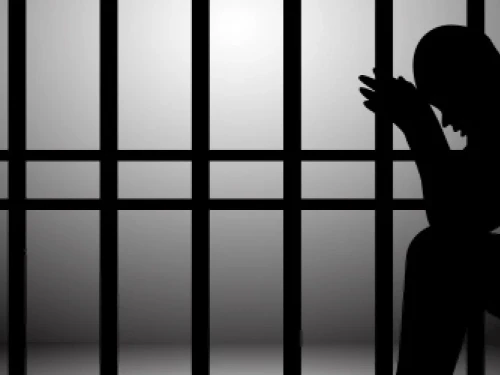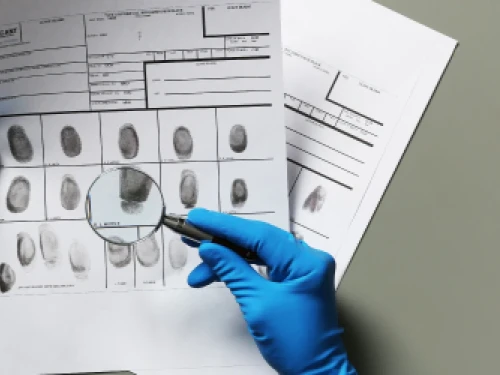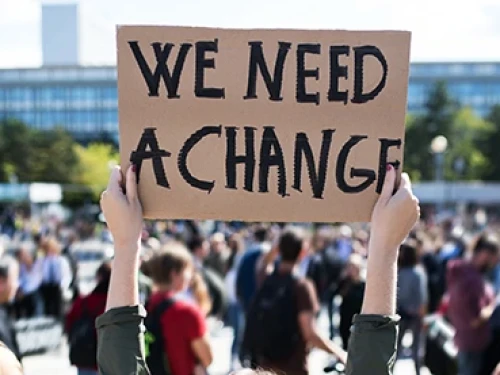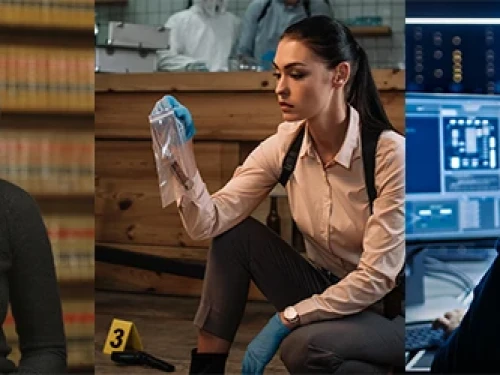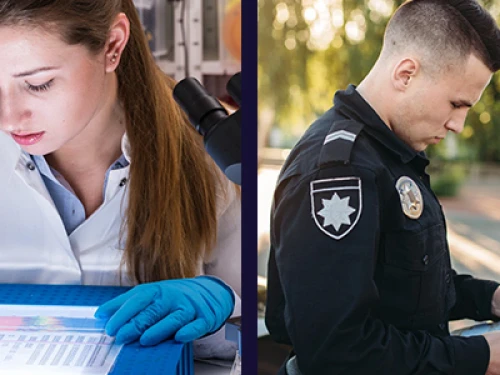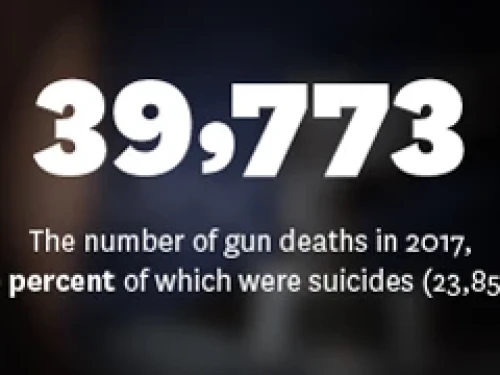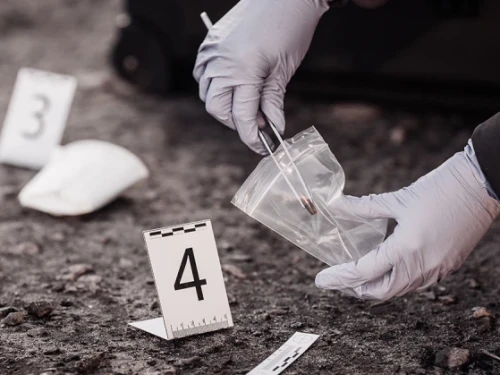Criminal Justice
Explore a wide range of topics on criminal justice, including career insights, celebrity trials, prison reform, and the differences between criminology and criminal justice. Stay informed with expert analysis on key issues like cyberbullying, incarceration, and legal debates.
Related Blog Posts
Balancing career aspirations with personal and professional commitments can be challenging, especially for those looking to advance in the criminal justice field. However, the rise of online learning has made it more accessible than ever for individuals to pursue higher education while managing their busy lives. Kent State University’s 100% online Master of Criminology and Criminal Justice program offers the flexibility and convenience needed to help working professionals achieve their goals without compromising their current responsibilities.
In the pursuit of justice, understanding and addressing the needs of victims is crucial to fostering a more compassionate and effective justice system. Victimology—the study of victims, their experiences, and the responses of the criminal justice system—plays a vital role in shaping victim-centered policies and initiatives that prioritize healing and support.
In today’s interconnected world, global security threats are becoming increasingly complex and multifaceted. From cyberattacks and terrorism to transnational crime and geopolitical conflicts, security professionals must be equipped with the skills and knowledge to navigate an evolving landscape. As these challenges continue to grow, criminology professionals play a crucial role in developing strategies to combat emerging threats and protect communities on both national and international levels.
The field of criminology and criminal justice offers a wide range of career opportunities, from protecting communities to supporting victims and addressing global security challenges. Whether you’re looking to advance in law enforcement, work in international security, or advocate for victim rights, choosing the right concentration in your graduate studies is a critical step toward achieving your career goals.
Author: Katherine Jurak, Kent State University
It’s in headlines wherever you look: the Johnny Depp and Amber Heard trial. Whether you’re tuning into television news, opening a paper or news app or checking your Twitter, or even scrolling on TikTok, it also seems like everyone has an opinion to share or is at least excited to participate in the thrill of watching it unfold.
The question, “Do prisons have air conditioning?” isn’t something that the public would typically ask, but it’s an important topic for those interested in criminology and the criminal justice system to consider. The treatment of prisoners is paramount, as it affects multiple, diverse aspects of incarceration.
In a culture ever more dependent on technology and the internet—for education, work, entertainment, and connection to our communities—it should come as no surprise that people behave online much as we do in person: with a mixture of kindness and cruelty, combining the best and worst of human intentions.
There are three reasons why you should earn a 100% online Master of Arts in Criminology and Criminal Justice at Kent State University:
There are currently two million individuals incarcerated in American jails and prisons. In the past 40 years, the prison population in this country has grown by 500%. According to The Sentencing Project, this unprecedented increase is due more to the changes in criminal justice policy and sentencing laws than to changes in the nation’s crime rates.1 Another recent, disturbing trend in criminal justice has been the significant increase of deaths—nearly one-third of them attributable to suicide in jails and prisons.2
Determining what degree field you’d like to explore more, means learning the subtle nuances of that degree. Case in point, what is the difference between criminology and criminal justice? These two terms seem similar in use because the career paths from both can overlap.
Whether you’re aware of it or not, you likely use encryption daily. Sending emails or text messages, using fitness trackers that communicate with apps on your phone, accessing an online banking portal and retrieving photos or files from cloud storage all take advantage of the security features of encryption. But there’s an ongoing debate about whether tech companies should be held legally responsible for de-encrypting devices seized by law enforcement.
Penal labor in the U.S. is explicitly allowed by the 13th Amendment of our Constitution. The amendment outlaws slavery or involuntary servitude in the U.S., except when serving as punishment for a crime where the person has been “duly convicted”. In the most generous light, you could see this as a way to provide training and work to inmates, but in reality, it’s often used in the U.S. to close budget gaps with cheap labor and to offset the cost of running a prison.
In 1996 Congress passed the Prison Litigation Reform Act (PLRA) to decrease the instances of litigation brought to the courts from incarcerated people. For the 25 years since the PLRA was signed into law by President Clinton, prison reform and advocacy groups have challenged the act as another obstacle to justice for the nearly 2.3 million prisoners in the U.S.1, specifically by denying equal access to the courts of the United States.
Get to know Kent State University even more through our vast array of blogs.
The need for technology support and secure environments is strong.
Initially, the United States aimed to create a justice system that protected the convicted or accused’s rights, with four of the initial 10 amendments focused on this cause. However, punitive policies and federal funds fueled mass incarceration disparity affecting poor and minority households while filling pockets of private industries.
The use of telephonic communications to solve criminal cases is not a new development but remains a highly controversial topic. Almost 20 years ago, the Los Angeles Times reported on how law enforcement agencies viewed mobile phones as “a powerful resource in investigations and trials.”1
At some point in your life, you have probably heard the term “halfway house” in relation to rehabilitation of some form. However, there is little publicly available information regarding these institutions, and few people really know how they function. Essentially, halfway houses are less strict ‘community prisons’ where low-risk prisoners can live and work together without the overbearing restrictions of traditional prisons.
Now, more than ever, the U.S. justice system needs skilled law enforcement officers to assist in protecting the innocent, keeping the peace and achieving the ends of justice. From lawyers and secret agents to forensic analysts and probation officers, there are many high-paying jobs within law enforcement. According to the Bureau of Labor Statistics (BLS), the median criminal justice degree salary in 2019 was around $81,820.1
Today’s criminal justice system faces unique challenges that demand highly trained, dedicated professionals. In the area of criminal justice policy, there are exciting careers in community policing and enforcement, the treatment and rights of victims in the criminal justice process, and current issues and practices in homeland security and cybersecurity. These specializations offer many opportunities for rewarding, well-compensated careers that are in high demand. For example, job opportunities for private detectives and investigators are projected to grow by eight percent by 2029, while those for information security analysts will grow by 31 percent.1,2
Intrigued by thoughts of international security jobs? Many people have built top-level, lucrative careers with government agencies, non-governmental organizations (NGOs), private contractors, foundations and think tanks.1
Intelligence-led policing (ILP) is a system of law enforcement that was first developed in the 1990s and grew in popularity in the U.S. after the September 11, 2001 terrorist attacks.1,2 This policing model relies on advanced data analytics, community involvement, and collaboration with other law enforcement agencies and organizations. Through shared intelligence and firsthand observation, police can be proactive rather than reactive in assessing risk, which has been shown to be an effective method for preventing crime.2
When we ask what organization has the goal of maintaining international peace and security, an answer that quickly comes to mind is the United Nations (UN). Founded in 1945, in the aftermath of World War II, its central mission is “the maintenance of international peace and security.”1 However, with today’s interconnected world and challenging cross-border issues, there are many peacekeeping groups that work together to help maintain stability around the world. In addition to the UN and its different bodies, including the General Assembly and Security Council, there are strategic partners, governmental and non-governmental organizations, and a vast array of independent nonprofit research facilities and advocacy organizations, all focused on global peace and security.
Respond to the need for change in your community. The NASPAA-accredited Kent State Master of Public Administration program will prepare you to focus on ethical leadership, budgeting and financial management in the private and nonprofit sectors, while you learn to comprehend and utilize complex nonprofit and public sector laws and strategic planning.
This year, discussions of criminal justice reform in this country have changed a great deal. In our presidential primaries, a record number of Democratic candidates’ platforms included the importance of reform.1 The COVID-19 pandemic and recent social justice protests have brought to light ways in which our entire system, including criminal justice and law enforcement, disproportionately affects poor communities and minorities.2
Many people want to have a meaningful impact on the world, and if you pursue a career in criminal justice, you have the power to do exactly that. So when considering what the best criminal justice jobs are, there’s more to think about than just salary. It’s also important to ask yourself what career you would find most personally fulfilling.
To someone outside of either field, criminal justice and criminology may sound like two names for the same thing. It’s true there is a significant amount of overlap between criminology and criminal justice — but they are two distinct, if related, fields.
Is gun violence a public health issue? Many Americans would have different answers to this. The truth is, it’s a complicated issue that brings out a lot of passion from each side. There are also political matters and bills that have been passed that have made solving this issue harder. So as we examine if gun violence is a public health issue, we’ll stick to the known facts. Let’s start by defining how our country determines what qualifies as a public health issue.
Few positions within the field of criminology and criminal justice have as much allure in popular culture today as crime scene investigation (CSI) jobs. Of course CSI careers in reality are not exactly like the versions of them you may see on television; their day-to-day work can be more mundane, and they require serious training and education to do them well. But if you are willing to put in the time and energy to channel your inner David Caruso and pursue a CSI career path, you may find it a creative and rewarding opportunity to work on the cutting edge of law enforcement technology.










